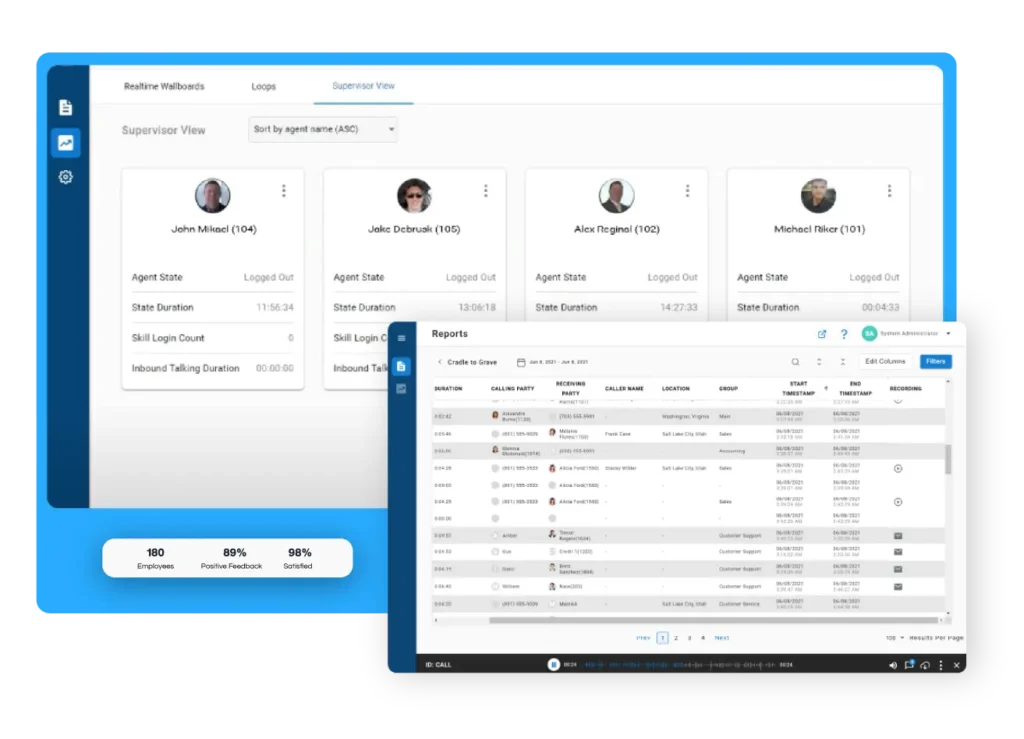In healthcare, contact centers aren’t just fielding calls. They’re fielding anxiety, confusion, and sometimes fear. A missed appointment reminder might mean a missed cancer screening. A billing error can send stress levels soaring. A delayed prescription? You get the idea.
So, when we talk about AI in healthcare contact centers, we’re not just talking about convenience. We’re talking about care.
The challenge is clear:
How do you scale support, reduce wait times, and cut costs without sacrificing the human warmth patients need?
The answer: automation that knows its limits.
Where AI Can Lighten the Load—Without Dulling the Experience
When used thoughtfully, AI isn’t a barrier between people. It’s a bridge.
Here’s where it works beautifully in healthcare contact centers:
- Appointment Scheduling & Reminders: AI can confirm times, send proactive nudges, and reschedule appointments—all without pulling in a human unless needed.
- Billing Questions (The Basic Kind): Not everyone needs to speak to a rep to check if a copay was received or what’s covered under Plan C.
- Prescription Status Checks: Did the refill go through? Is the medication ready for pickup? Let AI answer in real time.
These aren’t emotional conversations. They’re functional. When AI handles them well, it allows human reps to do what they do best: listen, empathize, and guide patients through more complex, sensitive situations.
But Here’s Where AI Should Know to Step Aside
Healthcare is full of nuance. A chatbot doesn’t know how to pause when a patient cries. An IVR can’t sense distress. That’s why it’s critical for AI to be aware of its role—and to make the handoff to a live human when:
- There’s a change in tone or sentiment that signals distress or urgency
- A patient is trying to explain something complex, like a coverage denial.
- A caller is confused and overwhelmed.
- A caregiver calls on behalf of a loved one and needs personalized guidance.
Great contact center AI doesn’t just automate. It observes, interprets, and escalates—gracefully—when human empathy is essential.
It’s Not Just About Efficiency. It’s About Trust.
In healthcare, trust isn’t optional. It’s everything.
When contact centers are overloaded, response times suffer. Patients are bounced between bots and live reps with no continuity, and confidence erodes.
By blending automation and human support thoughtfully, healthcare organizations can:
- Reduce operational overhead without compromising patient care
- Give agents time to focus on what truly needs a human touch.
- Build trust by ensuring every interaction feels personal—even the automated ones
This isn’t about replacing people. It’s about protecting them—from burnout, overload, and the crushing weight of doing everything manually.
Where Xima Comes In
At Xima, we understand that every interaction matters in healthcare. Our AI solutions are designed to automate the predictable—scheduling, status checks, routine billing questions—so your contact center staff can focus on the moments that require care, compassion, and a human voice.
With seamless escalation and patient-centric design, Xima helps you deliver the support that builds trust—at scale.
Want to see how it works in a healthcare environment?
Let’s connect. And yes, there will be an actual human on the call.



